In a joint initiative between the University of Zambia (UNZA) School of Agricultural Science and Wageningen University, 24 PhD students from diverse African and international backgrounds participated in a study tour to the Kasisi Agricultural Training Center (KATC). This tour, under the theme “Transdisciplinary Approaches to Promote Food and Nutrition Security in Africa and Advance Sustainable Development Goals”, provided the students with an in-depth understanding of dairy farming and climate-resilient agriculture, key drivers of sustainable food systems in Africa.
The group, which included students from Zimbabwe, South Africa, the Netherlands, Sudan, Uganda, and Zambia, was guided through practical sessions designed to integrate scientific research with hands-on agricultural practices. By bridging global knowledge with local solutions, the tour emphasized the significance of collaborative, interdisciplinary approaches in addressing the complex challenges of food security, climate change, and sustainable agriculture.
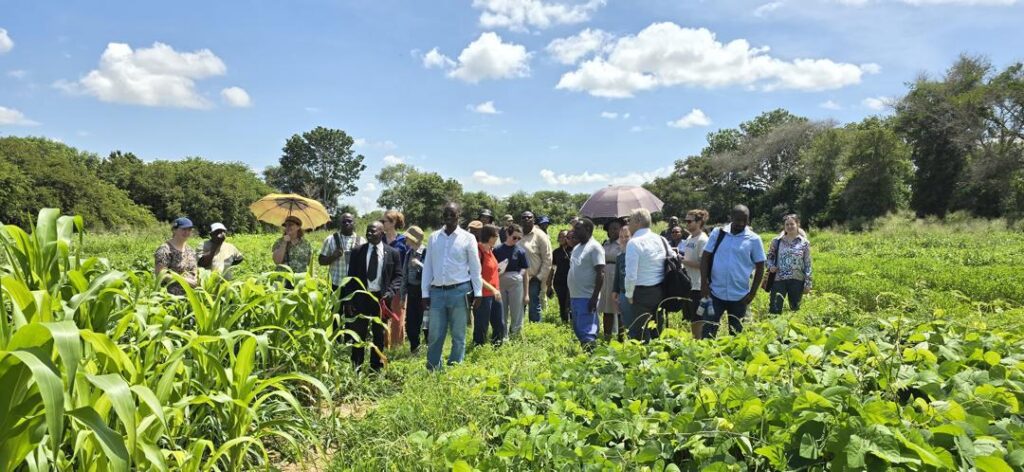
Learning About Dairy Farming and Milk Processing
The students’ visited Kasisi’s dairy farm and milk processing facility, where they were introduced to the processes that make up dairy production. A guided tour of the farm showcased the entire production chain—from the milking process to the final product. The students were introduced to various aspects of milk production, such as cow nutrition, breeding techniques, and herd management, with an emphasis on improving milk yield and quality.
A key learning point for the students was the facility’s value addition strategies, which included the production of milk-based products like cheese, yogurt, and butter. These value-added products contribute to both improved nutrition for consumers and increased income for local farmers, a crucial aspect of boosting economic development in rural communities.
Interactive discussions with trainers helped the students understand how technology and innovation are applied in dairy farming to increase productivity, meet market demands, and ensure sustainability in an increasingly competitive and changing global market.
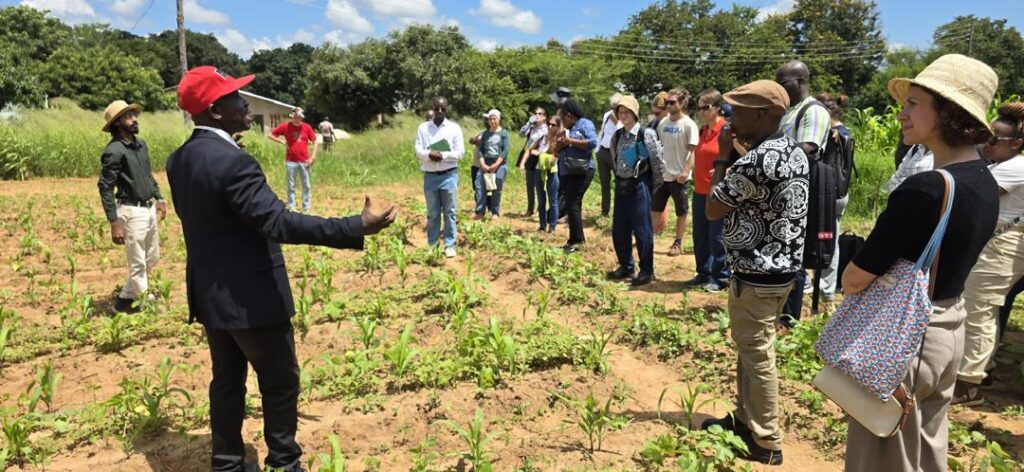
Exploring Climate-Resilient Crops and Natural Way of Farming
Following the dairy farm tour, the students were taken to the climate-resilient crop demonstration plots, where they observed practical applications of research into drought-tolerant and climate-resilient crops. As climate change continues to threaten food security, the demonstration plots at Kasisi serve as a valuable resource for understanding the importance of breeding and cultivating crops that can withstand harsh environmental conditions, such as prolonged droughts and irregular rainfall.
In these plots, the students observed varieties of drought-tolerant crops such as maize, sorghum, millet, and cowpeas—crops that are crucial for maintaining food security in areas vulnerable to climate stress. Research at the demonstration sites also includes studies on soil health, crop rotation practices, and water conservation techniques, which are integral to creating sustainable farming systems.
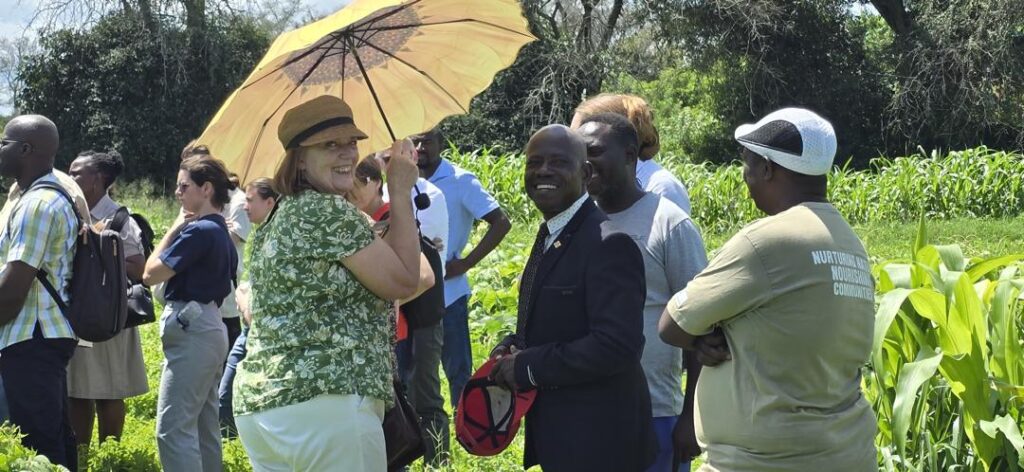
The students engaged in interactive sessions with Kasisi’s experts, discussing the latest research on climate-resilient agriculture. These conversations focused on innovative strategies to promote adaptation to climate change, as well as the role of agroecology in ensuring long-term agricultural sustainability. The students were able to explore how integrating these crops into traditional farming systems can not only ensure food security but also support biodiversity, improve soil health, and mitigate the environmental impact of farming.
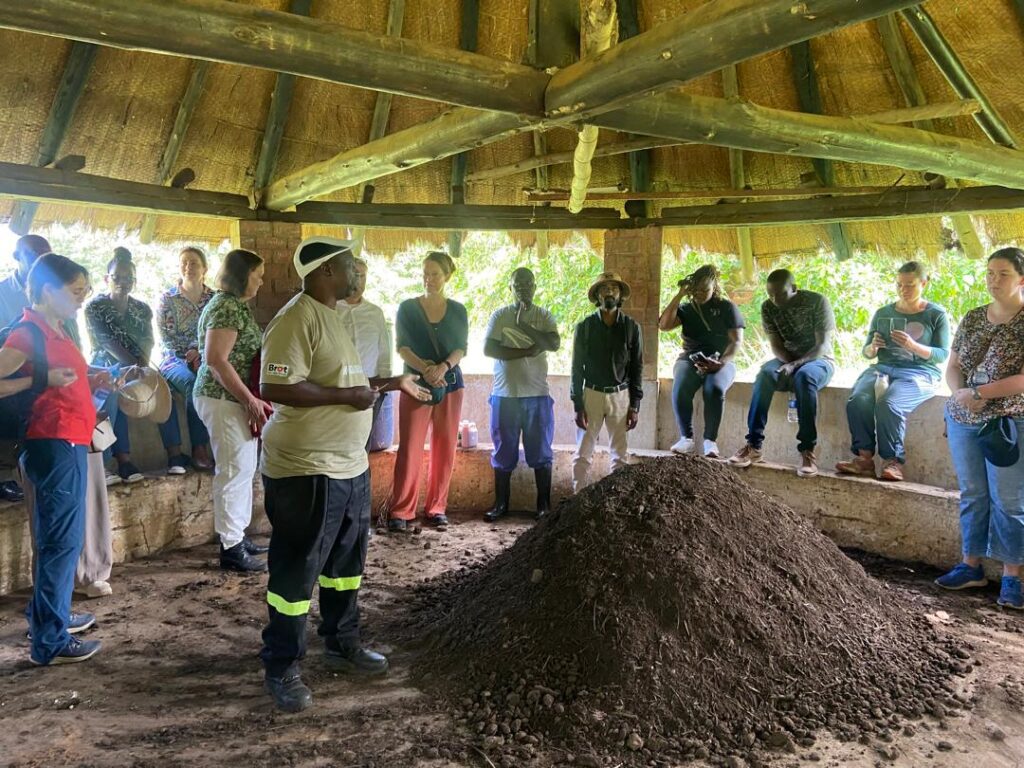
The central themes of the tour was the use of transdisciplinary approaches to address the multifaceted challenges of food and nutrition security in Africa. The students, coming from a wide range of backgrounds, had the opportunity to engage in deep discussions about how a holistic view—bringing together agricultural sciences, environmental studies, economics, policy, and local community engagement—can lead to more sustainable and inclusive food systems.
The integration of research with practical implementation is vital to advancing the United Nations’ Sustainable Development Goals (SDGs). During their time at Kasisi, the students gained a broader perspective on how collaborative approaches contribute to the achievement of SDG 2 (Zero Hunger), SDG 13 (Climate Action), and SDG 6 (Clean Water and Sanitation), among others.
The discussions also touched on how smallholder farmers can be supported through targeted interventions, policy frameworks, and educational programs that improve their capacity to adapt to climate challenges, increase crop yields, and improve food quality. Through these exchanges, the students learned that promoting food and nutrition security in Africa requires not only advanced scientific knowledge but also local involvement and the alignment of different stakeholders.
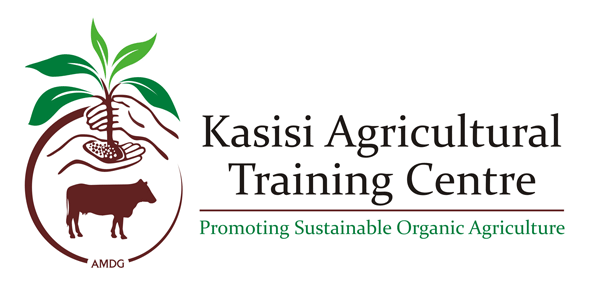
Recent Comments